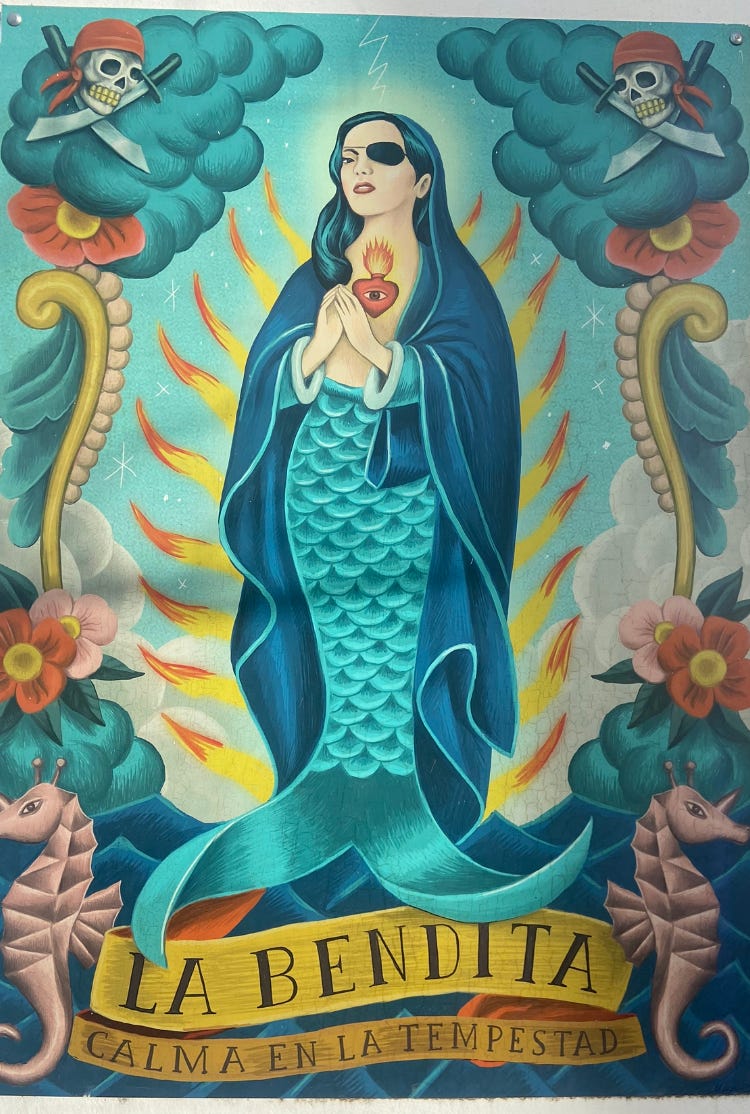What's up with the endless waiting?
Being creative while playing the waiting game
What does it take to be in a creative mindset, to feel a sense of momentum and imagination and hopefulness? I’m used to finding ways to circumvent the hurdles that make writing hard, and yet I often have trouble being creative and productive while playing a waiting game.
On the positive side, professionally: I recently had dinner with the producer developing The Forgotten Hours, and it was a joy to hear her ideas and to imagine my story on the screen. I have what I think is a great idea for the next novel, tentatively called Under the Light of the Ghost Moon. Sales for my novels are still going strong, years after publication. You all are part of my community, which is sustaining for me.
BUT I’m in a period of waiting right now, and it’s not easy. Is that a big deal? Writers are used to waiting! We wait to hear back from our agents. We wait for edits from our copyeditors. We wait to hear whether publishers want to buy our books. We wait to see if we made it onto any lists, or if readers will buy our work or if our TV show/ movie will ever get made.
Because there is so much waiting (during which we have zero agency), we know that the very best thing we can do is get on with the next project.
This waiting mindset is not conducive to creativity. But when you’re a career writer, you have to get on with your work. Just do it, right? It starts by taking one step, finding ways to nourish your creativity and spark ideas.
What do I do? I read novels and nonfiction history around my topic. I go to art exhibitions. I stare at beautiful images online. There are days when creating feels like pushing rope. But you keep going because it’s your job.
And the ideas start coming. Soon, images attach themselves to your characters and you start wondering about them. Who are they? As you wonder, words crop up and sentences form… and with that come snippets of scenes… and your characters start wanting things and creating (and solving) problems.
You’re off, creating again.
I want to be bold without being foolish. I want to be patient without being passive. I want to create without feeling uncertain.
A scorching take down
Speaking of the vagaries of publishing, I just finished the novel EVERYONE in the industry is talking about: Yellowface, by R. F. Kuang. It’s about two psuedo friends who are writers—one successful1, the other not. When the successful one chokes on an uncooked pancake and dies, the unsuccessful one steals her friend’s manuscript and passes it off as her own.
“It’s… the most granular critique of commercial publishing I’ve encountered in fiction, and seeing the cruel, indifferent vagaries of one’s industry so ably skewered is viciously satisfying,” wrote the NYT. The book plays off recent publishing scandals and shines a stark light on #ownvoices, literary snobbishness and internecine jealousy.
Kuang’s agent tried to discourage her from writing it, and all the writers who’ve read it can’t believe William Morrow published it.
Book publishing exists within a capitalistic system, and can be pretty vicious. But reading about all the drama can be fun. My main question with this book is whether anyone who isn’t in publishing will find it interesting.
"Reading Yellowface felt like being inside a wild, brutal, psychological knife fight with a deranged clown. A merciless satire that left me screaming inside... from both its horror and humor." — Constance Wu
Things that inspire me
While I was in NYC, I stumbled on the Sarah Sze exhibition at the Guggenheim and I was utterly transfixed. I love the texture, depth, color and movement in her work. Why does this kind of thing make me feel energized and hopeful?
Who knows, but I’ll take it!
Writing tip
My absolute favorite mantra, which is taped up above my desk is this: It’s not that complicated.
Just get on with it. Just start. Just write a sentence. Just take one step forward.
It’s not that complicated.
Oh my god, what does success even MEAN for a writer? That’s for another time.





Ah, waiting. And yes, get on with something else. I remember that advice of--when you're submitting, be sure to get working on something else. Ideally, start the something else before you start submitting. Getting an agent for novel #2 took a year plus; in that year, I was able to get a decent rough draft of novel #3. Which I liked better than #2 (agent did as well). It was the best distraction I could hope for. Otherwise, it's crazy making. Great post, thanks!